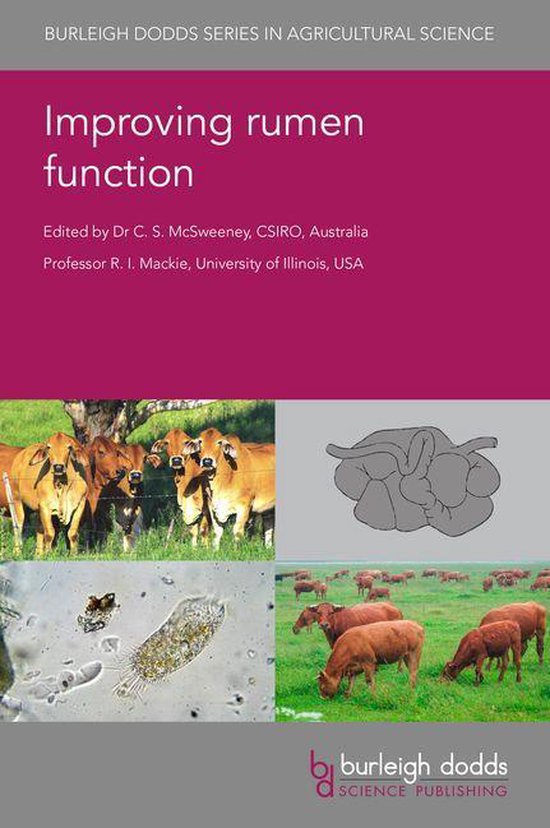Burleigh dodds series in agricultural science 83 improving rumen function

Direct beschikbaar
Major advances in analytical techniques and genomics have transformed our understanding of rumen microbiology. This understanding is of critical importance to livestock production since rumen function affects nutritional efficiency, emissions from ruminants (such as methane and nitrous oxide) as well as animal health. This collection reviews what we know about rumen microbiota and the role of nutritional strategies in optimising their function for more sustainable livestock production.
Part 1 summarises advances in methods for analysing the rumen microbiome. Part 2 reviews recent research on the role of different types of rumen microbiota such as bacteria, archaea, anaerobic fungi, viruses and the rumen wall microbial community. Part 3 discusses the way the rumen processes nutrients such as fibre and protein as well as outputs such as energy, lipids and methane emissions. Part 4 explores nutritional strategies to optimise rumen function, including the role of pasture, silage, cereal feed, plant secondary compounds and probiotics.
- 1 Bekijk alle specificaties



Taal: en
Bindwijze: E-book
Oorspronkelijke releasedatum: 23 juni 2020
Ebook Formaat: Adobe ePub
Hoofdauteur: Dr André Bannink
Tweede Auteur: Dr Soumya Kar
Co Auteur: Dr Kristin Hales
Hoofdredacteur: Dr Chris McSweeney
Tweede Redacteur: Prof. Roderick I. Mackie
Hoofduitgeverij: Burleigh Dodds Science Publishing
Lees dit ebook op: Desktop (Mac en Windows)
Lees dit ebook op: Kobo e-reader
Lees dit ebook op: Android (smartphone en tablet)
Lees dit ebook op: iOS (smartphone en tablet)
Lees dit ebook op: Windows (smartphone en tablet)
Editie: 1
Studieboek: Nee
EAN: 9781786763341